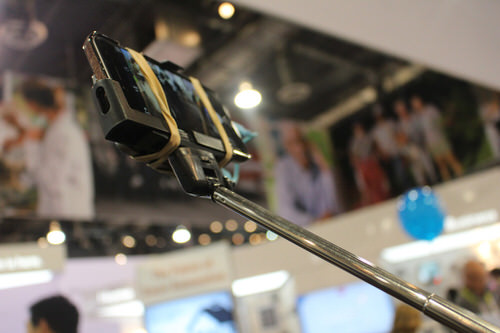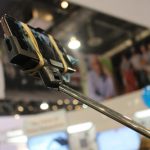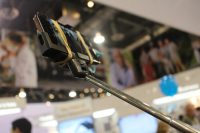How to repair damaged wearables with magnetic ink
How to repair damaged wearables with magnetic ink

As technology introduces more and more options, wearables that monitor various health and wellness factors in individuals are quickly becoming a popular focus in the tech world.
Things such as onesies that monitor a baby’s sleeping and sports bras that track workouts are starting to enter the market, but the electronic components can be so fragile, that their practicality comes into question. That is where the University of California, San Diego has stepped in with a major breakthrough in the wearable world that may solve this problem.
See Also: What will the wearables of the future look like?
A nano-engineering team at the University of California has developed ink made from ground neodymium magnets. When a gadget comprised of this ink is damaged and splits apart, the particles attract one another and repair the gap. During testing, tears up to 3 millimeters long healed themselves in milliseconds.
Amay Bandodkar, one of the individuals who helped with this project, said the breakthrough could extend the life of wearable technology.
“If you’re wearing a device on your skin and it gets broken as you move around, you don’t have to throw it away. Within a few seconds it’s going to self-heal, and you can use it over and over again,” explained Amay Bandodkar.
Magnetic ink might be better for the planet
The team used neodymium magnets, located in hard drives and refrigerator magnets, and ground them up into the ink, which is what makes the ink super-magnetic.
According to Bandodkar, there are many purposes for this ink. It is cheap, and would contribute towards the sustainability of wearable technology. It could be used in batteries and electrochemical sensors as well as circuits.
As much technology today is considered disposable and is often limited in its recyclability, this could be a key way to keep some of this wearable tech out of landfills.
The post How to repair damaged wearables with magnetic ink appeared first on ReadWrite.
(37)




